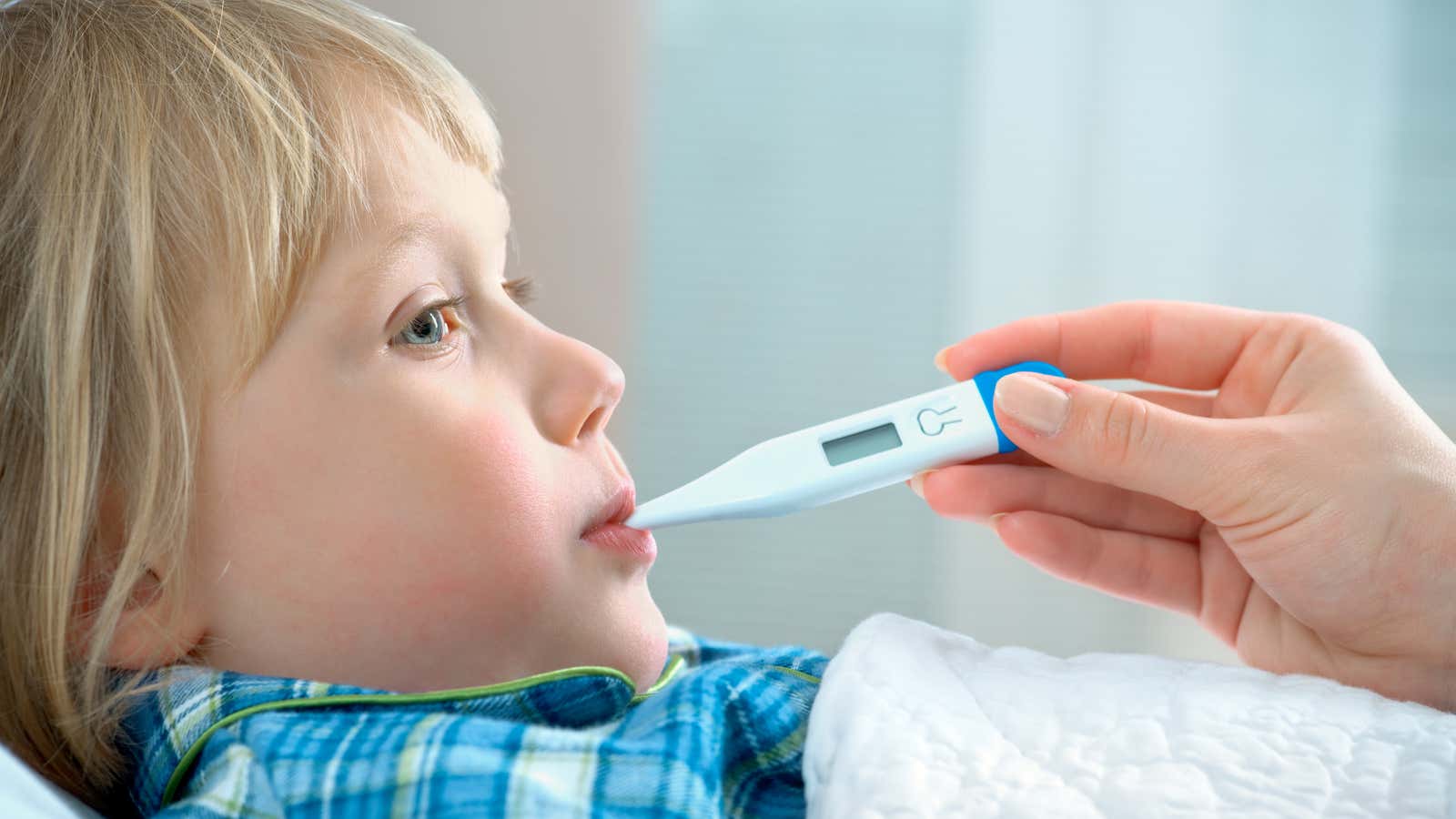What Parents Need to Know About Coronavirus

The regular cold and flu season is bad enough when kids bring germs home all winter. But this year, we may also add the sinister coronavirus disease to the mix. This coronavirus, dubbed COVID-19 , has been all over the news for the past month; As parents, what do we need to know about the virus and how can we prepare and protect ourselves and our children?
Let’s start with the basics
By now, you probably know that COVID-19 is a type of respiratory illness. Symptoms are similar to those of a cold or flu, mainly fever, fatigue, and a dry cough. Some patients may also have pain, diarrhea, sore throat, nasal congestion, or runny nose (although it has also been noted that a runny nose is a possible but not common symptom of this virus), according to the World Health Organization :
These symptoms are usually mild and onset. Some people become infected but show no symptoms or feel bad. Most people (about 80%) recover from the disease without special treatment. About 1 in every 6 people who contract COVID-19 will become seriously ill and have difficulty breathing.
Experts are still studying how COVID-19 spreads, but the results show that it spreads from person to person through airborne droplets when you cough, sneeze or exhale.
It seems to affect children LESS than adults
We know that young children are at high risk for certain illnesses, such as the flu. But according to the Centers for Disease Control and Prevention , as far as we know, children are no more susceptible to this coronavirus than adults; the elderly seem to be more vulnerable to serious illness because of this.
The exception will be for children (and adults) with pre-existing medical conditions such as asthma or diabetes, according to the WHO .
Go ahead and stock up on essentials and disinfectant
Having extra bottled water, non-perishable food items, and other essentials is just good practice because we don’t always know when severe weather, natural disasters, or other emergencies might occur. And it doesn’t hurt to have a bleach or sanitizer on hand at this time of year, too, to clean up any potentially contaminated surfaces in high-traffic areas in your home.
We don’t yet know if schools or businesses will have to be temporarily closed to help prevent the spread of this coronavirus in the United States, but if they do, or if someone in your home gets sick with the virus, you’ll be ready. Nothing is burning here now, but it won’t hurt and might help, that’s what I’m talking about.
You (or your kids) don’t need to panic
There is – a big surprise! – a lot of misinformation about COVID-19. In general, it is good practice to check your sources before determining if something is fake or factual, and this is no different. Remind your older kids that just because they read this on Instagram doesn’t mean it.
For the most authoritative and up-to-date information, go directly to the WHO COVID-19 page, the CDC page for US information, or your local health department website. In particular, the WHO “ dashboard ” helps to see where the virus has spread around the world. (At the time of this writing, there are only 59 confirmed cases in the US, compared to nearly 79,000 in China.)
Robin Gurwich, a psychologist at Duke University Medical Center, told US News & World Report that if your kids are worried about the virus, ask them what they heard, then explain what you know according to age:
“Be honest with your kids. Explain that it started in China and people are working very hard to keep this virus from spreading here. Let them know it looks like a real cold. Tell them what precautions they can take to stay healthy. And then ask them what they think of what you just told them so you can correct any misconceptions, Gurvich said.
It’s also a good opportunity to consider ways to protect yourself (and others) from germs: washing your hands properly , coughing and sneezing in the crook of the elbow (not in the arm), and keeping your hands out of your eyes and nose. and mouth.
If you or your children are not feeling well
First of all, if someone feels unwell in your home, they should stay at home and not go to work or school. WHO recommends seeking medical attention for anyone with a fever, cough, and shortness of breath. But that doesn’t mean you have to rush straight to the doctor’s office or local emergency department at the first sign of a cough. The FAQ on the Cedars-Sinai website explains:
Whenever possible, you should call your doctor in advance before visiting so that when you arrive, healthcare providers can take appropriate steps to isolate you immediately and prevent contact with others. A phone call to your provider can also clarify your real risk. Go to the emergency room only for serious life-threatening problems such as shortness of breath or chest pain. Most patients with flu-like symptoms or worried about the coronavirus can be screened at a clinic or emergency center.
However, if you have a mild illness and are struggling with it (or another virus) at home, Lifehacker Health Magazine Senior Editor Beth Squarecki will give you advice on how to protect others in the home.
And finally, remember that your kids are still much more likely to get the flu – and while there is currently no cure or vaccine for COVID-19, it’s not too late to get the flu shot .